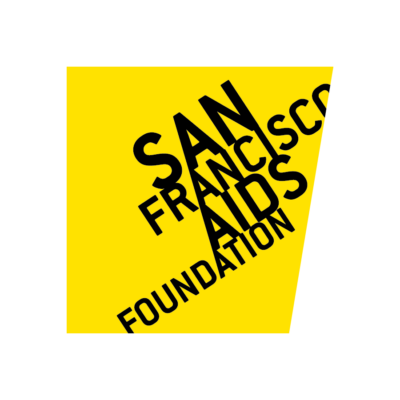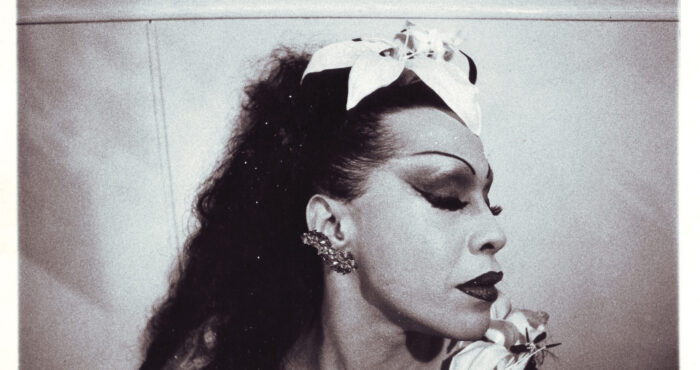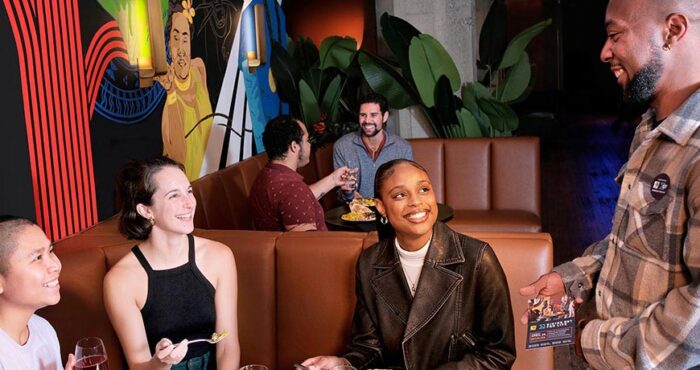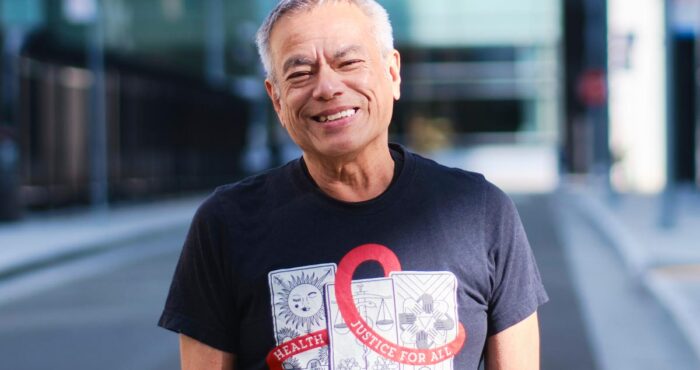Restoring dignity, confidence and hope: A focus on the fight for Black women
“It’s hard to maintain your dignity—and your health—when you’re fighting every day for your life.”
–Andrea Horne, TransLife program coordinator at San Francisco AIDS Foundation
Andrea Horne, TransLife program coordinator at San Francisco AIDS Foundation, sees first-hand how Black trans women in our community get caught in a never-ending cycle of marginalization, economic inequality, criminalization and social injustice. She, and other fellow colleagues working with communities of color, are passionate about providing the right mix of social support, information and practical resources in order to help restore Black clients’ dignity, confidence, resiliency—and health.
“Black trans women, in my opinion, have it the worst in this country,” said Horne. “It’s hard to maintain your dignity—and your health—when you’re fighting every day for your life.”
Horne, who herself is a Black trans woman, said that trans women—especially trans women of color—are pushed to the economic margins in our society, trapped in a lifestyle fraught with violence and criminalization and other things that can stand in the way of good health and quality of life.
“Many trans women, because nobody will hire them, turn to survival sex work,” she said. “This ultimately leads to violence, losing your possessions. You might turn to drugs, or get HIV. You get arrested. You go to jail, and when you get out, you don’t have any money. Still, nobody will hire you. So you start the same thing over again. Some women never get out of that cycle.”
Jamal Bey, program coordinator for the Black Health Center of Excellence (Black Health COE) at San Francisco AIDS Foundation, sees clients in similar circumstances. Bey works with African American people who have been newly diagnosed with HIV, helping them find temporary housing (if they are experiencing homelessness), get linked to medical care, start HIV treatment, and connect to a community of other people of color living with HIV. Black Health COE’s central goal is to help clients living with HIV get—and remain—virally suppressed in order to reduce new HIV infections in the African American community.
Many, if not all clients are dually- or triply-diagnosed, said Bey. In addition to living with HIV, they may have substance use or mental health diagnoses. Bey said that unstable housing is also one of the top concerns that his clients face: He estimates that about 60% of his clients are unstably housed. Before he can help his clients get engaged in HIV care, he first tries to help them find a stable place to live.
“Poverty and homelessness prevent people living with HIV from maintaining their health,” said Bey. “If you don’t have a place to stay, you don’t have a place to take or store your medications. If you’re out on the streets, you might lose your medications. If you’re couch surfing, and don’t want the people you’re staying with to know you’re HIV-positive, you might be scared to take your medications.”
Once Bey is able to help a client find a place to stay—sometimes in a shelter or a single-room occupancy (SRO) hotel—he then is able to help them connect them to medical care and resources. This can include things like HIV care, mental health care, substance use treatment, legal representation, and more. In addition to practical health resources, Black Health COE builds a community of people living with HIV with regular social support events.
“African American women living with HIV deal with an enormous amount of stigma,” said Bey. “I knew one woman who was dealing with being infected with HIV from her husband who had gotten out of prison. She went to the women’s HIV clinic and ended up making up a story and leaving—she was afraid somebody from her housing project would see her at the clinic and then know she was living with HIV.”
Black Health COE and TransLife both strive to empower people living with HIV, reduce stigma, and support resiliency. Black Health COE holds group learning events where members learn practical skills and information to build health and wellness, on topics including nutrition, substance use, and engaging health care providers. TransLife also holds group sessions every Wednesday, from 2 pm – 5 pm, where members have the opportunity to hear about relevant health topics including HIV and PrEP. Horne incorporates time into each TransLife group meeting to watch videos of inspiring Black trans women and hear stories of survival and success.
This is important, explained Horne, because “there aren’t a lot of trans folks of color on TV or in the media, presented as regular people just trying to make it in the world. We have to look to other people.”
Since Horne joined TransLife as the program coordinator, she’s seen two members of the group get jobs. “That’s life changing,” she said. “TransLife has been helping to build people up and connect them to community resources—we have to help people restore their dignity and confidence.”
“In our society, Black trans women are an afterthought,” said Horne, “but it doesn’t have to be that way.”
Although the focus of the Black Health COE program is to get people in care and virally suppressed, Bey said that he’s most inspired by the restoration of hope that occurs in his clients.
“The best part is seeing someone come here in a state of despair and hopelessness, and then maybe six months to a year later, after working with our case managers, get to a place where they see some hope. Their life has been impacted in a way where they don’t feel hopeless anymore.”
—
Find out more about San Francisco AIDS Foundation programs and services, including TransLife, Black Brothers Esteem, Black Health COE, sexual health services, substance use services, and more.










